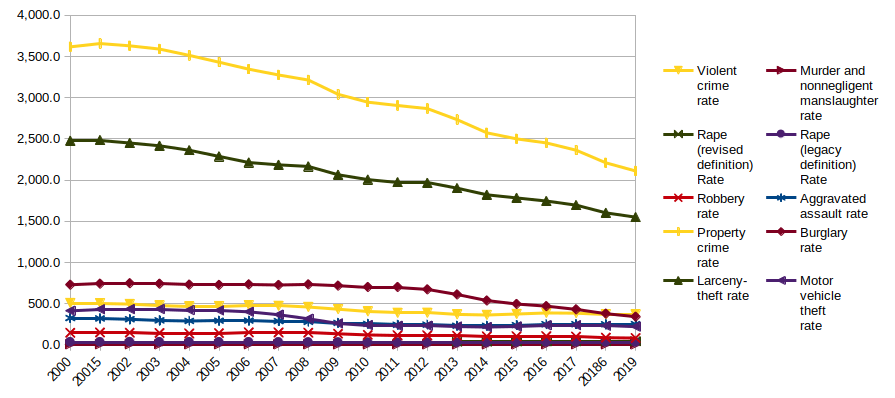We have lost one of our commenters due to violation of The One Rule.
The rule is still in effect even if you were kind enough to support us by purchasing a subscription.
AWA for the GFZ admin team
We have lost one of our commenters due to violation of The One Rule.
The rule is still in effect even if you were kind enough to support us by purchasing a subscription.
AWA for the GFZ admin team

B.L.U.F. An example of winning in court. Oregon’s legislature rushes to moot cases and to fix parts of Measure 114.
H/T Bh.Z and OFF
On January 9th, 2023 Senate Bill 348 was introduced. The bill was short. It was a bill giving the Oregon Department of Justice a requirement to …study ways to address the unlawful possession of firearms.
— Senate Bill 348. The DoJ was given until December 31,2024 to provide the report back to the legislature. On January 2, 2025 the first section of the bill would be repealed.
On its face this doesn’t sound all that bad, directing some government entity to do a study is a way of spending taxpayer money to get “facts” to use against The People in infringement cases, but better a study than another infringement.
Oregon Firearms Federation sent an alert telling its members that this was a bill to observe as it was likely there as a gut and stuff bill. Often times a legislature has rules to protect The People from the state. Things like a bill must be read 3 times before it can be voted on. That there must be a certain amount of time between readings. That the bill has to be analyzed by the appropriate committees to make sure it will be “legal”.
But there is an important part of these rules to remember, amendments are not subject to the same rules. The idea being that members have had enough time to analyze the bill and are not going to propose “fixes” and “changes” to make the bill better. When those amendments are presented the body votes and if the amendment gets enough votes the amendment is applied to the bill.
If the bill is in both chambers of a bicameral legislature there will be a reconciliation phase that takes place if the two bills are actually different. If both the Senate and the House versions are the same then it is deemed to have been reconciled and it moves forward to the Governor or President for signature to turn the bill into a law.
A “gut and stuff” bill is a bill that is specifically designed for this amendment process. When the bill is read an amendment is offered that “guts” the entire text of the bill and then “stuffs” entirely new content in place of the original text. Suddenly you have a bill with the same identifiers that has been through the pre-vote approval process with totally new content ready for a vote.
This is where the famous Nancy statement comes from “We have to pass the bill to see what is in it.” The bill in question then was ObamaCare and it was gut and stuffed into an entirely different bill with a short timeline to a vote. With 2000+ pages of new text it was impossible for any one person toi read the entire bill before the vote.
In infringement bills it is often the case that they legislature doesn’t want The People to have time to react.
The watchers have to spot the bill. They have to see the amendment go into place. They have to craft an alert. The alert has to make it to The People and only then can The People respond with email, calls and faxes.
In person responses take even long. This is why the NYS S.A.F.E act was so bad on a procedural level. Even though there are laws in place to give people time to respond, the infringers got it passed in an emergency session before those alerts and responses could take place.
With the NYS CCIA the republicans only had the press release until the very last minute. It wasn’t possible to respond until they got the text of the bill and they didn’t get the text until the last minute.
Matt is out there fighting for the safety of the people of New Jersey. You know this because Louis tells you so. But it is fun to look some of the fun things he has to say Here in New Jersey, we have the fourth-strongest gun laws in the country. We also have the third-lowest rate of firearm deaths in the country and the lowest rate of firearm ownership with just 8.9% of New Jersey households reporting to own firearms.
Id.
Is he proud his state has some of the worse gun right infringements in the country. He is proud of the infringements in the concealed carry permitting. He is proud of the infringements on individuals making firearms. He is proud of the infringements on people right to purchase firearms without permission. He is proud of being a tyrant.
But he is very upset that some people aren’t taking a knee to these infringements. Unfortunately, this was almost instantly challenged by gun-rights groups who claimed the law was unconstitutional because it violated the Second Amendment.
id.. Yep, you read that right, they claim it was an infringement, not that it was.
And it just gets worse for him. To add insult to injury, the Supreme Court ruled in June that the Constitution provides a right to carry a gun outside the home
Id. How horrible it is that the Supreme Court reaffirmed in Bruen that Heller is still good law and that if it is an arm in common use it is covered by the Second Amendment and if it is even a little infringement it is too much.
So Louis doesn’t get to have Matt go to the courts and whine that his law should make people safer so it should pass constitutional muster.
But let’s take a look at some of Louis’s claims, that New Jersey is somehow special in the reduction of violent crimes. Of course he might be cherry picking to just crimes committed with firearms:

Every statistic tracked in violent crime in the FBI’s UCR shows that crime is decreasing. That might be meaningful.
(more…)

When looking at Boland v. Bonta, the “Unsafe Handgun Act” out of California, it was nice that the judge “got it right”.
Unfortunately the reasoning that he had in his opinion niggled at me. There was something wrong. It should have been this hard.
Then Mark Smith applied the clue-by-four and it made things obvious.
The UHA is a gun ban. Full Stop.
Consider a law that said “A firearm with a barleycorn front sight is banned” We would instantly recognize that as a gun ban. If it is a gun ban then the plain text of the Second Amendment is touched on and it then the state must prove that there is a history and tradition of regulating classes of guns with particular features.
When the feature was “pistol” then Heller found that a ban was Unconstitutional. The holdings of the Supreme Court have shown that it doesn’t have to be a complete ban, it only has to touch the plain text of the second amendment in order for regulation to be presumptively unconstitutional. It is up to the state to prove history and tradition.
But what if we turned the statement around? What if we said “Any firearm without a barleycorn front sight is banned”. This is still a ban, the state has just inverted the logic from “can’t have” to “must have”. It is a ban. Treat it like a ban in court.
Now if the state chooses to hide that ban inside a bunch of other regulations, it might be harder to see.
For example what if the law said “you can only buy firearms on this list” and “We are only going to put firearms with barleycorn front sights on the list”. It is still a ban, it is just a two step process.
Think of it the same way we think of machine guns. According to the law, machine guns are not banned. You are free to buy them if you can find somebody willing to sell them to you. All you need is to jump through NFA hoops.
But because of the Hughes amendment no NEW machine guns have been added to the transferable NFA list. This has caused the cost/value of machine guns to sky rocket.
I don’t think any gun infringer really wants to be told that the difference between an AR-15 and a M-16 is $75 in parts and an extra hole. Which means that the cost of a machine gun should be about the same as its semi-auto version.
The closing of the NFA registry for machine guns is a ban on machine guns.
The UHA is also a ban. No matter how much lipstick is slapped on that pig, it is still and always will be a gun ban.

Everything in this article that is not a quote is my understanding. I AM NOT A LAWYER so the odds of me getting something wrong is non-zero.
In Boland v. Bonta: Another District Court Win “UHA” I quoted and wrote.
I should have spent some more time figuring out what this all means.
It was great to see so many of you have been advocates for the Second Amendment. More of you have testified than I expected to see.
Thanks to all of you that fight the good fight.
We had a couple of articles this week that were not authored by your normal hosts. Thank you to SkinnedKnuckles for his article about working to get an actual firearm safety program started in the local school system.
The other outside article was the blurb from Michel Associates, PC. That was more interesting to me. I had reached out to the helpdesk at the firm and expected to end up communicating with some public relations person. To have the first response come from the senior partner was shocking to me.
Is it of interest to you to get short articles about groups and firms that are fighting for the Second?
The Second Circuit court hard oral arguments on 5 Second Amendment cases on Monday. We are now in a wait and see holding pattern. We can make a couple of different assumptions about the judges, they could all be anti-gun, they could all be pro-gun, they could just be ignorant, or they could just be following the law.
If they are anti-gun they are going to ask if it is in the best interest of the infringers to find for the state or the plaintiffs. If they find for the state the plaintiffs will appeal to the Supreme Court and that would be bad for gun rights infringers. If they find for the plaintiffs the state might not appeal but might instead change the law to require a relitigation.
If they are anti-gun rights I can almost bet that it will take a long time for them to reach an opinion.
If they are pro-gun or just following the law they will find for the plaintiffs and the state will have to decide if they want to play in the Supreme Court, again, after just being slapped down in Bruen.
If they are ignorant, we are going to end up with case law that is going to be hard to deal with. This might be the worse case.
Thank you once again to all of our readers and thank you to all the people that found the article like button.

We are the children of the “right now” age. I am old. I remember my mother going to the Grayhound bus depot and paying them to deliver two huge boxes to her hometown in the midwest. This was the only way to get a package that big that far in a reasonable amount of time.
Reasonable amount of time? About a week or so. At which point my grandparents would go to the bus depot to get pick up the packages.
When I was a child working on motorcycles I would create a parts list and then once a month we would go into the big city and I could purchase parts at the motorcycle dealership(s).
We would dig through our Scholastic book pamphlet and pick out the books we wanted. Three or four weeks later our books would arrive. We’d look though the Sear’s catalog and place an order. A few weeks later it would arrive.
The other day I needed replacement “Plackers”. I spent less than two minutes online to locate what I wanted, purchased more for much less than I could locally and they were delivered as soon as we had cleared our driveway.
Everything today happens quickly. I can send an email around the world in less time than it takes to print that same letter. I can have a response back before I close my email program.
My introduction to The Internet was when I noticed that if we dropped UUCP messages in one node in Michigan it would show up in California with a timestamp only seconds different than the arrival time.
We are spoiled. Everything should be moving as fast as online shopping and online communications.
The following is taken from an announcement from the SAF
H/T to B.Zh
When the House Committee on Oversight and Accountability convenes Thursday to discuss alleged abuses by the federal Bureau of Alcohol, Tobacco, Firearms and Explosives (ATF), one of the people offering testimony will be attorney Matthew Larosiere, who serves as an adjunct scholar of law and policy for the Second Amendment Foundation.
The hearing may be watched here, beginning at 10 a.m. (EDT) / 7 a.m. (PDT) Thursday. It is headlined, “ATF’s Assault on the Second Amendment: When is Enough Enough?”
“We’re proud to have Matt offering insight to the House committee,” said SAF founder and Executive Vice President Alan M. Gottlieb. “Under Joe Biden, the ATF has been weaponized against law-abiding citizens, and his new budget proposal includes $1.9 billion for the agency to expand operations and increase regulation of the firearms industry.”
Larosiere will offer testimony regarding the threat ATF’s overreach poses to the American people. He will also focus on the ATF’s dramatic change in policy about pistol stabilizing braces, owned by countless law-abiding citizens including many disabled military veterans who have suddenly found themselves facing possible legal action for owning a shooting accessory, which is not a firearm, that the agency previously said was perfectly acceptable.
“ATF has been known for its institutional abuse of power throughout history,” said SAF Executive Director Adam Kraut. “Now, more than ever, the agency is being weaponized as a means to punish peaceable gun owners and drive small businesses out of the marketplace by inventing creative statutory interpretations surpassing the agency’s authority and scrutinizing federal firearms licensees every actions in a ‘gotcha’ manner.
“With the directives from the Biden Administration,” Kraut added, “a simple mistake such as transposing a digit or placing required information in the wrong field results in license revocation, rather than a warning, under the guise of a ‘willful violation’ of the Gun Control Act. This overbearing approach does nothing to support the government’s interest in compliance and destroys livelihoods over innocent mistakes.”
“Clearly,” Gottlieb said, “President Biden and Capitol Hill Democrats have decided American gun owners are their enemy. They are scrambling to restrict the Second Amendment rights of tens of millions of citizens, and create problems for the firearms industry, and they’ve unleashed the ATF to make it all happen.”
I reached out to Michael & Associates, PC for a short write up about their firm. They have been doing great work for the Second Amendment community for years. They are based out of California.
Thank you very much for their hard work supporting the Second Amendment.
This is what they sent:

Michel & Associates, PC is one of the nation’s most recognized and well-respected firearms law firms. Our attorneys are among the world’s most experienced successful Second Amendment advocates. Our extensive firearms law and litigation experience enables us to address increasingly complex issues to help our clients. Our attorneys have expertise in the mandates of federal and state firearm laws and regulations. We wrote the book on gun law in California: California Gun Laws, A Guide to State and Federal Firearms Regulations (www.calgunlawsbook.com).
Michel & Associates’ attorneys appear at agency and legislative rule-making proceedings that impact firearms owners’ interests, assist in drafting firearms legislation, represent clients in firearm licensing matters, represent firearms manufacturers, wholesalers, and retailers in product liability litigation, defend against firearms-related criminal charges, and challenge ill-conceived or unconstitutional state laws and local ordinances in court.
We advise manufacturers, wholesalers, retailers, clubs, ranges, and firearm owners on regulatory compliance requirements, defend against criminal or government agency regulatory enforcement actions, and represent various clients challenging gun control laws on Second Amendment and related grounds.
Our clients include non-profit associations, industry trade associations, gun show promoters, firearm importers, manufacturers, distributors, and retail dealers, indoor and outdoor shooting ranges, law enforcement agencies and officers, special-effects companies, prop houses, armories, pyrotechnicians, and individuals and companies facing firearms-related federal or state licensing and compliance issues or criminal charges.
Michel & Associates has challenged dozens of laws and regulations on Second Amendment grounds. Litigation and test cases moving through the courts today will establish the parameters of the right to keep and bear arms for future generations. We are proud to be on the front lines of the self-defense civil rights battle.
Please go visit the California Rifle and Pistol Association. Give them some love for all they are doing for the Second Amendment community.

B.L.U.F. A big win out in California where parts of the Unsafe Handgun Act were enjoined. If this injunction stand it is possible that new handguns will be added to the California Roster for the first time since 2013. Side note, the say that there are some 800 handguns on the roster, this is misleading. A firearm can be on the roster multiple times because each sku is considered a different handgun. I.e. a changing the finish of a handgun makes it a different handgun in the eyes of the state.
On 2022-08-01 the plaintiffs(good guys) filed a Complaint for Declaratory and Injunctive Relief in the Federal District Court of Central California. The complaint asks does the California Unsafe Handgun Act (UHA) violate the Second Amendment by denying The People of California access to new firearms in common use throughout the country? and does the UHA violate the Commerce Clause by interfering in interstate economic activities?
Or as the plaintiffs put it:
and:
On 2022-09-22 the parties agreed to drop the second question regarding discrimination against interstate commerce.
The defendant response consists of nearly 18 pages of the Attorney General denies each and every allegation
unless they are admitting to a statement of law. In that case he still denies each and every allegation and denies even the quoted regulation if it is misstated. For other paragraphs he says he just doesn’t know.
In short the AG’s answer is “Nope.”
The state then claims affirmative defenses. An affirmative defense is when the other party is required to prove. The first is that the state claims that the plaintiffs failed to state facts sufficient to bring action against the state. Given that the state denies all the allegations this makes sense.
Then there is that old bugaboo. They claim that the plaintiffs lack standing and if they did they there are adequate remedies within the law for their complaint.